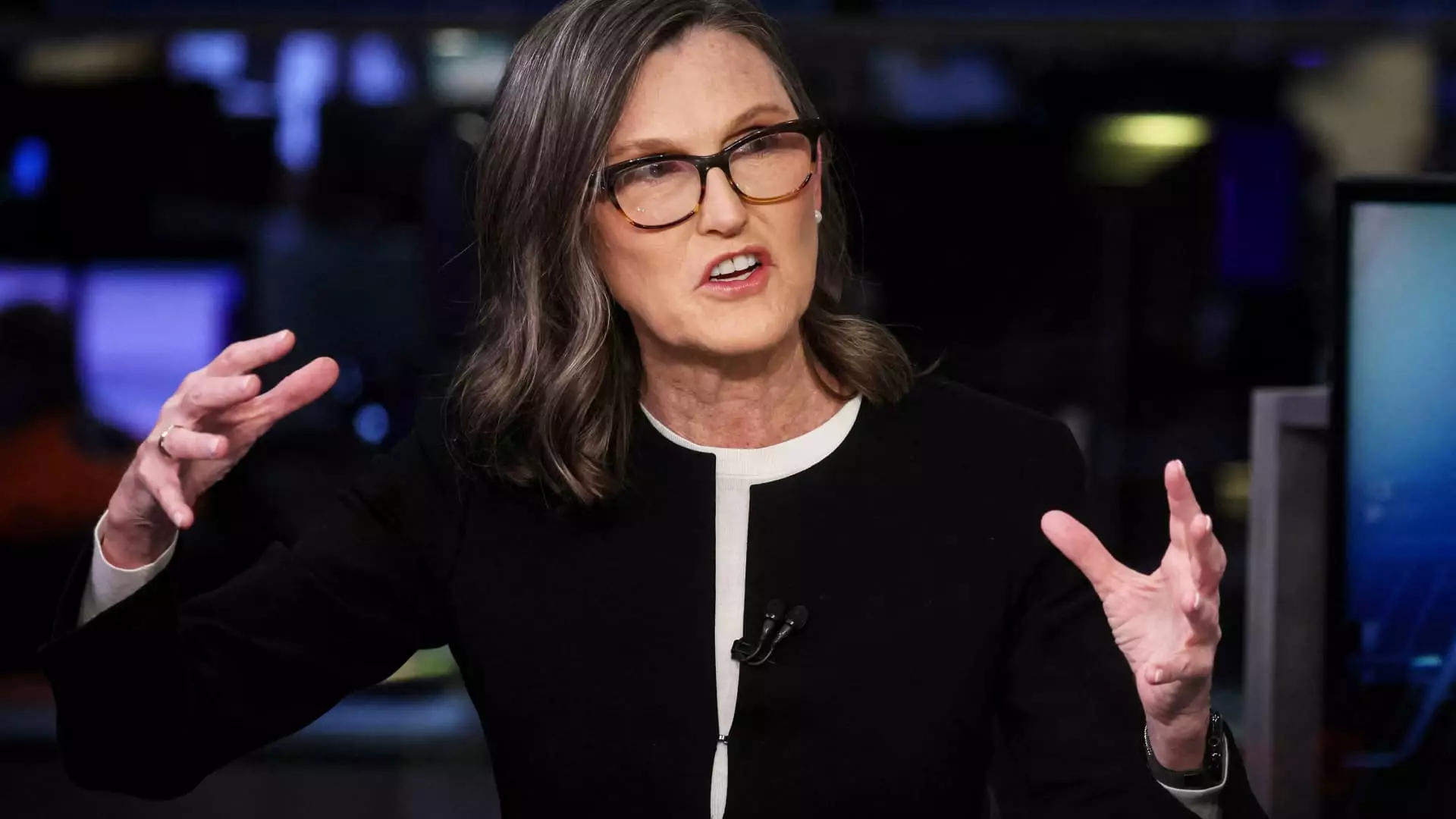After the recent reelection of Donald Trump, one would expect significant investor enthusiasm for innovation-driven investment strategies. Despite Cathie Wood’s Ark Innovation ETF (ARKK) showing a robust recovery of over 30% since Election Day, investor response remains tepid, highlighting a disconnect between market performance and investor confidence. This article examines the dynamics affecting ARKK, explores the impact of political developments on innovation investing, and discusses implications for the future.
Cathie Wood’s Ark Innovation ETF has recently enjoyed a notable boost, especially attributed to its substantial investment in electric vehicle giant Tesla, which comprises approximately 16.3% of the fund. Tesla’s stock surged around 70% following Trump’s electoral victory, contributing significantly to ARKK’s near 18% year-to-date return. Yet, the growth in value masks a troubling trend: despite the fund’s impressive performance, ARKK faced $49 million in outflows in November, with an additional $24 million in the first week of December. This outflow trend is part of a broader narrative, as ARKK has seen a staggering loss of over $3 billion in 2024 alone.
This paradox raises fundamental questions about investor sentiment. Factors such as market volatility, long-term confidence in innovation sectors, and the relationship between policy shifts and investment strategies play crucial roles in shaping investor behavior. Despite a record year for the ETF industry, with approximately $1 trillion flooding into new funds, ARKK is grappling with the reality of dwindling interest from investors who once flocked to Wood’s bold vision during the pandemic era.
Wood’s strategy, characterized by high-stakes bets on growth-focused technologies, initially captivated investors during the pandemic. Her foresight on companies like Tesla and Zoom resulted in remarkable returns. However, the pandemic rally quickly unraveled, leaving ARKK down approximately 60% from its 2021 peak. Investors are now left reassessing the overall viability of innovation funds in a post-pandemic landscape where valuations and hype do not always equate to sustainable performance.
Interestingly, Wood is positioning herself for potential opportunities arising from a pro-business environment that may evolve under Trump’s leadership. The potential for deregulation, paired with advancements in technology, could indeed create new avenues for growth. Wood optimistically notes that these innovations may catalyze economic growth surpassing even the milestones set during the Reagan administration.
Among the prime beneficiaries of the post-election rally within the ARKK portfolio is Tesla. Despite Wood’s recent decision to trim her Tesla holdings slightly, selling over 51,000 shares for about $21.8 million, the company remains a critical pillar in ARKK’s lineup. Furthermore, the cryptocurrency exchange Coinbase stands out as another strong performer, having rallied more than 80% this year amid increasing speculation that Trump’s administration could herald a golden age for cryptocurrency.
Investor sentiment is further buoyed by the hope that new regulations may cultivate a more favorable climate for cryptocurrencies and innovative financial instruments. The remarkable rise of Robinhood, another sizeable holding in ARKK, which has surged an astounding 213% this year, reflects that optimism. Yet, as promising as these stocks appear, others in the ETF—like Roku and Pinterest—are grappling to regain their pre-pandemic highs.
As Cathie Wood navigates the uncertain waters of post-election investing, ARKK’s story serves as a microcosm of broader market complexities. Despite significant short-term gains, the sustained flow of capital into the fund will depend heavily on investor confidence and the ability of innovation-led companies to outperform in a climate fraught with geopolitical and economic challenges.
While Wood champions a future rich with innovation possibilities, the realities faced by stocks in her ETF emphasize the notion that popularity does not guarantee success. The road ahead for ARKK is fraught with both potential and pitfalls, as investors weigh the risks against a backdrop of political change and the lingering effects of a tumultuous economic landscape. The crucial takeaway for both Wood and her investors will be the necessity of adaptability in a rapidly evolving market.

